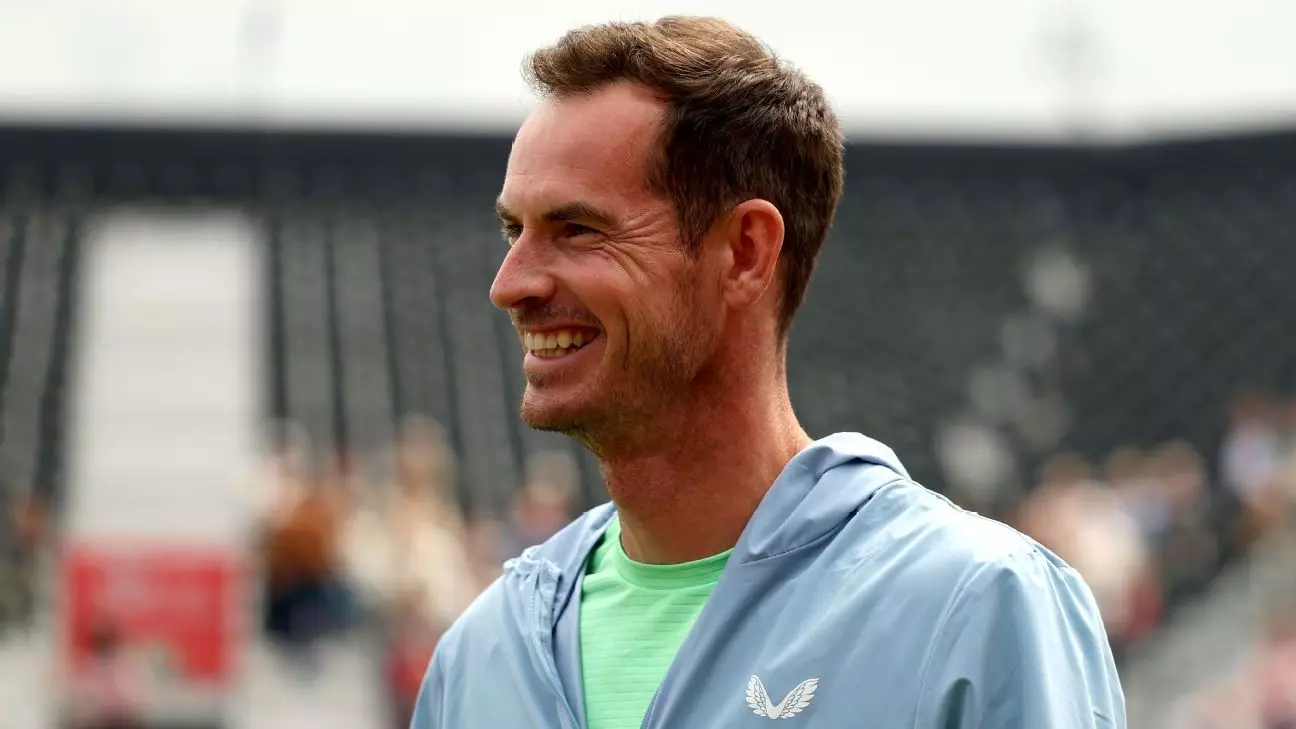In a surprising turn of events, Andy Murray has opened the door to the possibility of coaching following the conclusion of his short-lived partnership with tennis giant Novak Djokovic. The collaboration, which lasted a mere six months, provided Murray with a unique lens through which to view the sport he has passionately dedicated his life to. Despite a mixed bag of outcomes during their time together, Murray’s experience with one of tennis’s all-time greats ignited a sense of curiosity about future opportunities in coaching.
Murray’s honor at the Queen’s Club, where the center court was named after him, showcases the respect he commands in the tennis community. This accolade signifies not only his achievements in the sport but also his potential influence as a mentor to up-and-coming talent. His comments indicate that while an immediate leap into coaching isn’t on the horizon, he isn’t dismissing the idea either—suggesting that Murray may be pondering the emotional and intellectual rewards of stepping into a coaching role down the line.
Learning from the Best
Working alongside Djokovic certainly provided Murray with valuable insights that extend beyond the mere mechanics of tennis. As he acknowledged, learning from such an accomplished peer was an eye-opening experience. Murray emphasized the personal moments spent with Djokovic away from the court, highlighting how the essence of the sport often lies in the relationships forged among athletes. This perspective could serve him well should he choose to coach, as fostering strong bonds with players is essential to nurturing their talent and resilience.
It is also worth noting that Murray’s acknowledgment of disappointing results highlights a key lesson in sports: resilience and adaptability. Both on and off the court, experiences—good and bad—shape the character of an athlete. Murray’s candidness about the results not meeting expectations shows that he values the journey over the destination, a lesson that aspiring players can greatly benefit from.
The Shift Towards Leisure
Since stepping away from professional competition, Murray has shifted his focus more towards leisure pursuits, notably golf. His whimsical admission of his “diabolical” tennis performance during a recent doubles rally with a child partner signals a shift in his self-identity as an athlete. Yet, despite spending less time on the court, he has not lost the fundamental love for tennis that originally drove him—a sentiment echoed in his admission of missing the thrill of competition.
This juxtaposition between leisure and serious competition points to a broader narrative in athletics: the importance of evolution. Athletes like Murray often find themselves redefining their identity after retirement. Whether that’s through coaching, commentary, or simply enjoying life outside the rigorous demands of professional sports, each path reflects personal growth and transformation.
A Future filled with Possibilities
Andy Murray stands at a fascinating crossroads as he contemplates his next steps in a post-playing career. His open-minded attitude towards coaching could reveal a promising future for the tennis world. Few individuals understand the intricacies of high-level play better than someone who has triumphed on those very courts. As he weighs his options, understanding how his own setbacks can become valuable lessons for others will be crucial. Ultimately, Murray’s journey embodies a blend of humility and tenacity—a combination that could empower a new generation of players ready to carve out their own legacies.


Leave a Reply